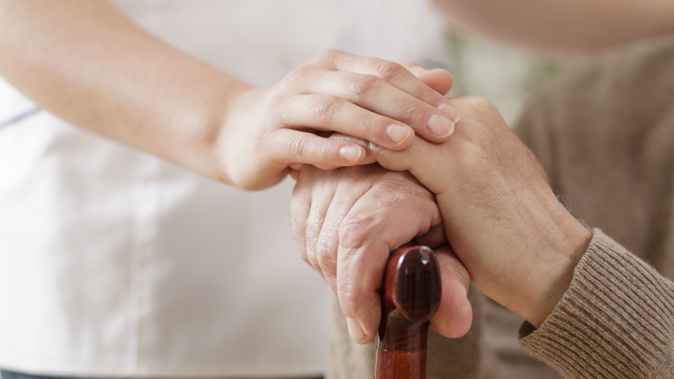
A 95-year-old slept in a recliner chair for 24 days because a rest home couldn't provide a suitable bed, her family says.
The woman's daughter eventually called 111 after her mother's legs swelled and she became confused.
Bupa NZ has apologised for the "distress caused to the resident and her family" but did not answer specific questions about the chair.
The woman moved into Whakatane's Mary Shapley Care Home in early 2016, originally for respite care. Her daughter told the Weekend Herald there was a small bed in her room, but it couldn't be used because her mother was unable to lie flat.
She repeatedly asked for a hospital-style bed that could be adjusted, she said but was told there were none available. As a result, she said her mother was put in an old recliner chair in the room, and stayed there day and night, including for meals.
"I kept saying, 'Can she have a bed? Can she have a bed?' You can't sleep in a La-Z-Boy at 95 for that length of time.
"All she wanted was a bed that they could [use to] raise her head a little bit, which I don't think is an unreasonable request in a place taking $1800 a week off you."
The daughter, who asked for names to be withheld given the small community she lives in, said her mother's mobility meant she couldn't get up herself.
"Basically, they put her in a chair and took her away and showered her. If she wanted to go to the toilet they would get her out.
"But my mum was an independent lady, she didn't like bothering people. So it took her awhile to get into the idea that when she wanted something, she had to ring the bell.
"She'd sort of sit there to the stage where she was jolly near wetting herself. And then she would finally push the [call] bell."
Her daughter visited every day. In March 2016 she called an ambulance after her mother, who was mentally sound, seemed "away with the fairies" and had badly swollen legs.
She said the paramedic asked about an adjustable bed but a rest home staff member told him there weren't any available. He then took the 95-year-old to the local hospital.
After she was discharged her daughter moved her to another local aged care facility for hospital-level care. Her mother died in June 2016, and her daughter believes removing her from Mary Shapley was the only real option available to her.
Mary Shapley is owned by Bupa NZ, which is one of the biggest aged care companies and owns more than 50 rest homes. A spokeswoman said the company apologised for the distress caused to the resident and her family.
"The well-being of our residents is our absolute priority and we take all concerns about the care received in our homes extremely seriously. We encourage an open dialogue with residents and their family."
Bupa contacted the daughter on Thursday and offered a "sincere apology", the spokeswoman said.
The company declined to answer Weekend Herald questions sent Tuesday morning, including whether it accepted the resident had used the chair and not a bed, and about the family's concerns that medical treatment wasn't sought.
"We will be engaging with them in our review of the circumstances around the care provided in 2016. Respecting the privacy of the family, it would be inappropriate to publicly comment further at this stage."
The daughter said she kept her mother at home as long as possible, but her own illness meant she couldn't lift her when she lost the ability to walk.
"It tore my heart out, and still tears my heart out right now. It was just one of the most horrible things I had to do. I promised my dad the day he died that I would look after mum for as long as I could. And I really, really tried."
She said her only motivation to speak out was out of concern for the roughly 36,000 people in aged care facilities. She did so after reading a Weekend Herald article, part of a series on aged care that found:
• A third of the country's 651 aged care facilities have had recent shortcomings related to resident care. Residents have died from festering bedsores.
• Cases of residents being strapped to chairs all day with minimal movement or repositioning. Staffing levels so low at some facilities there is a risk to the safety of residents.
Consumer and health advocates are pressing Labour to act on policy held in opposition, including updating voluntary aged care standards and making them mandatory.
Responsibility for the sector was recently transferred to Associate Health Minister Jenny Salesa, who said the complaint, and any failure of care, was distressing.
"These events are sporadically highlighted by the media. In general, the media discover these events from the audit process, which shows the audit process works," Salesa said in a statement.
The Health and Disability Service Standards were currently being reviewed, and this gave to opportunity to strengthen safeguards "and better reflect contemporary best practice guidance in aged care", Salesa said.
Take your Radio, Podcasts and Music with you








